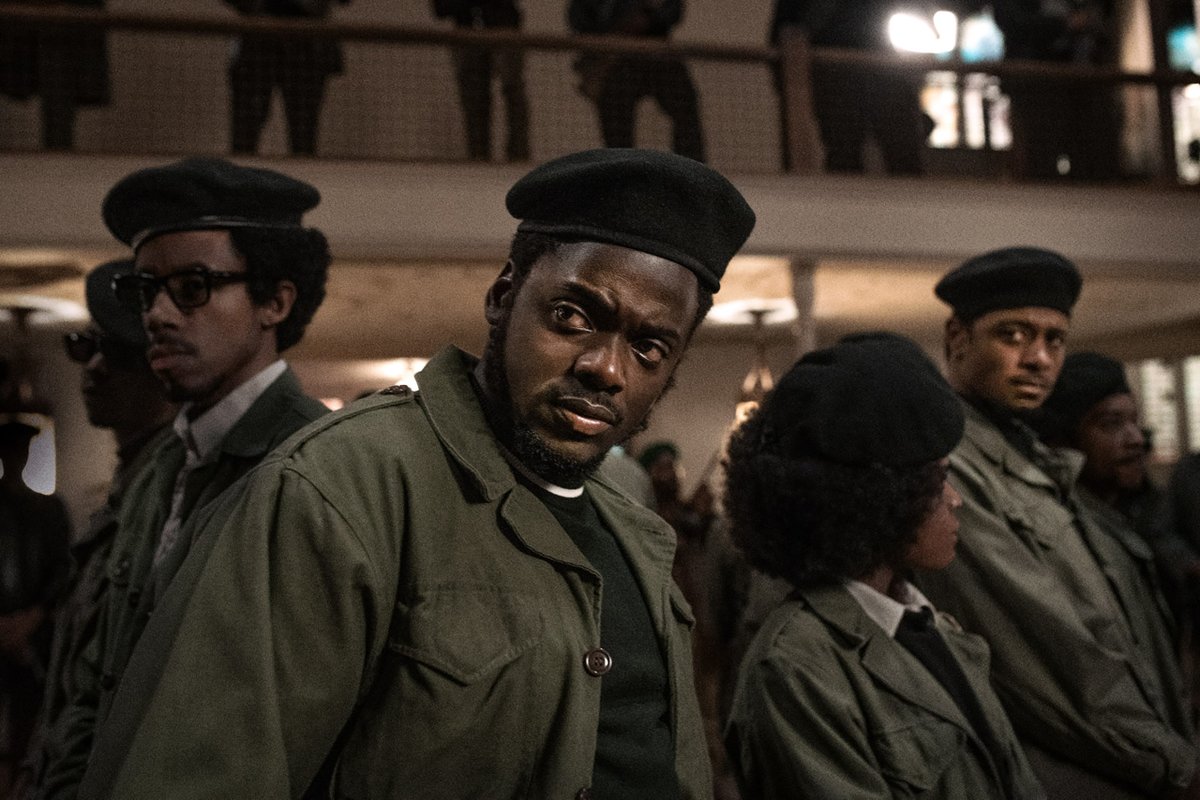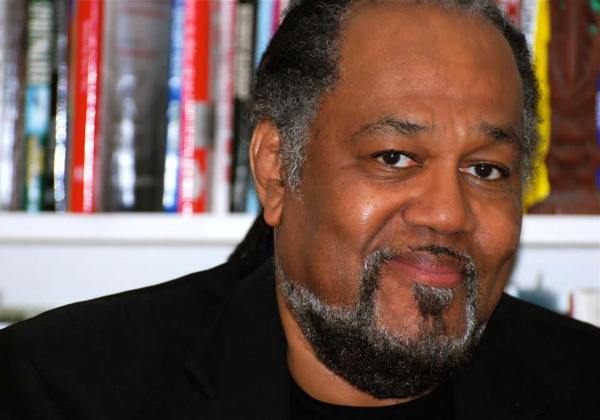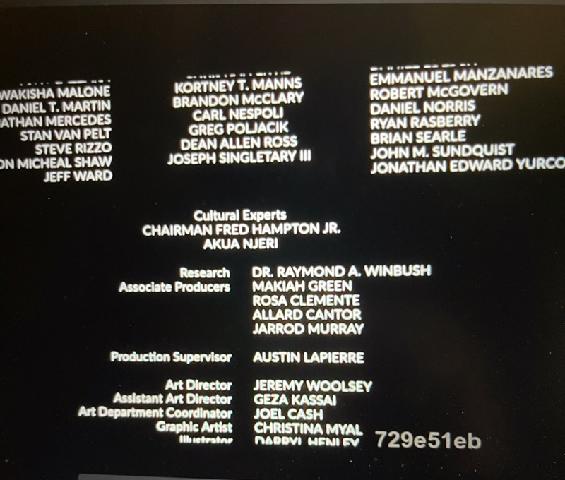Featured
How A Professor And His Former Student Reconnected To Bring ‘Judas And The Black Messiah’ To Moviegoers

Dr. Ray Winbush was sitting in his living room when a former student from his days teaching at Vanderbilt University called with an invitation to work on a movie guaranteed to generate excitement at the box office and reignite a decades-long conversation about the Black Panthers.

“He always told me he was going to do movies and produce positive movies about Black people,” Winbush recalled. “I had seen films produced by Charles King, but his name was rather common so I didn’t really associate him with that.”
But the Charles King Winbush knew from 30 years ago was the same Charles King who had pivoted from Hollywood super agent to movie producer, working with stars like Viola Davis and Denzel Washington in “Fences.” And, now King wanted the professor he credited with influencing him in college to bring his laudable research skills to an all-star crew that included ‘Black Panther’ movie director Ryan Coogler to tell the story of a real-life Black Panther, Fred Hampton.
“I said, ‘I was in Chicago about six months after Fred Hampton was assassinated,'” Winbush explained. “On July 1, 1970 I started my Master’s degree, and it was seven months after Fred’s assassination. It was still fresh, and that’s all people were talking about at that time.”
Hampton was 21-years-old when the FBI burst into his apartment and killed him, firing 100 bullets with two of them hitting him as he slept. The authorities were tipped off by William O’Neal, who worked closely with Hampton and the Black Panthers. O’Neal had drugged Hampton and provided agents with details about the apartment where Hampton, his pregnant girlfriend, and other members of the Black Panthers — including 22-year-old Mark Clark who was also shot and killed by police, were the night of December 4, 1969.
Making the movie
For years there had been talk of setting the record straight about Fred Hampton’s impact in Chicago, building coalitions with other social justice organizations, and the FBI’s role in his death, but Hampton’s fiancee and now-adult son were reluctant to approve a Hollywood retelling, afraid it would obscure the truth.
“They had to be convinced that this film was going to be an authentic portrayal of his life and death,” Winbush said. “And one of the conditions was that they be on set on every scene. They argued about things, but it was also with the mission of getting things done.”
During that initial telephone call from King to Winbush, King invited his former professor to fly to Chicago for a meeting with Coogler, his wife, and director Shaka King where “we all just hit it off.”
Winbush is the Director of the Institute of Urban Research at Morgan State University, and as the researcher for the movie, he spent time in Chicago “digging up stuff.” One of his trips took him to the Chicago Historical Society which is located on the north side of the city in what he described as a “real tony” neighborhood where he received some assistance leading him to information crucial to the credibility of the film.
Winbush said “I was looking for the actual pictures of the house where Fred was killed or assassinated when this white woman whispered to me, ‘Have you ever heard of the Red File?’ She pulled out these files … I was unaware that the FBI and the state’s attorney had been surveilling everyone: anybody who spoke up about anything, men, women, black and white.”
As Winbush gathered the information, he would send it to Shaka King for incorporation into the film. Recently, King talked with ‘Democracy Now’ about making ‘Judas and the Black Messiah,’ addressing the striking character differences between Hampton and O’Neal.
King stated, “You’re talking about, like, they’re opposites, literally. Like, you have a deep-seated capitalist ideology in William O’Neal, and you have a deep-seated socialist ideology in Fred Hampton. You have one of the most brave human beings of all time, and you have a person who demonstrated incredible cowardice. So, you have an individualist; you have a person who is a master at building coalitions. And you have two people who have two very different definitions of power and freedom.”
‘Judas And The Black Messiah’

The movie debuted at the 2021 Sundance Film Festival and is now in theaters and streaming on HBO Max. The New York Times describec it as “vey good — nearly great,” and raised the possibility that it is the most revolutionary movie ever produced in Hollywood.
“There is no white Savior in the film,” Winbush asserted. “Usually, we have films where the white guy saves somebody or something or the white woman saves somebody. It’s the same reason ‘Black Panther’ resonated … we were the central characters and white people were kinda peripheral. And, usually, it’s the other way around.”
With award season approaching, ‘Judas And The Black Messiah’ has been nominated for two Golden Globes. Daniel Kaluuya received a Best Actor nomination for his portrayal of Hampton, who Kaluuya studied to perfect the charismatic leader’s speaking voice.
Kaluuya described his method, saying, “He had a very distinct way of speaking, and I just had to focus on him, you know. His speech is a window into how he thinks. I need to get into his thinking in order to move into a space of his speech.”
For Winbush, the nominations are exciting and so is the chance to “introduce a new generation” to Hampton.
“Well, I’m an educator,” he said. “And by any means necessary, if it takes Hollywood, if it takes writing a book, I just think it’s important to educate our people.”

-

 Featured10 months ago
Featured10 months agoCalifornia Is the First State to Create A Public Alert for Missing Black Youth
-

 Featured10 months ago
Featured10 months agoAfrican American Leaders Stay the Course Amid Calls for President Biden To Bow Out of Race
-

 Featured10 months ago
Featured10 months agoThe Debate Fallout Lands on Both Candidates
-

 Featured10 months ago
Featured10 months agoPresident Joe Biden Decides to Withdraw from the Presidential Race
-

 Featured10 months ago
Featured10 months agoPresident Joe Biden Describes Shooting of Donald Trump As ‘Sick’
-

 Featured10 months ago
Featured10 months agoIn One of His Final Speeches as President, Biden Says It’s Time for ‘Fresh Voices’



